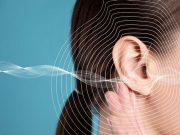Tag: Dizziness/Vertigo
Absent, Enlarged, Confluent Saccules Best for Identifying Meniere Disease
Presence of saccule abnormality or asymmetric perilymphatic enhancement and incomplete vestibular aqueduct visualization optimizes MRI diagnosis
Middle Ear Pressure Therapy Aids Vertigo Symptoms
Symptoms improved with the EFET01 device in both patients with Meniere disease and delayed endolymphatic hydrops
Predictors of Vertigo After Endolymphatic Sac Surgery ID’d in Meniere Disease
Audiogram type and pure-tone threshold average can predict vertigo after endolymphatic sac decompression in Meniere disease
Physical Therapy Linked to Drop in Falls for Patients With Dizziness
Receipt of physical therapy within three months of presentation linked to reduced risk for subsequent falls
No Change Seen in Frequency of Recurrent Vertigo Attacks Over Time
Attack frequency did not change over three years for people with benign recurrent vertigo, Meniere disease, or vestibular migraine
Clinical Severity Staging System May Aid Tx Selection for Meniere Disease
Decreased vertigo severity, comorbidity burden, and absence of hearing loss tied to conservative treatment response
Vertigo Improves With Endolymphatic Sac Surgery, Cochlear Implant in Meniere
Rate of vertigo control higher after cochlear implantation alone versus endolymphatic sac surgery alone or with cochlear implant
Vestibular Function Tests ID Vestibular Migraine Versus Meniere Disease
Additionally, vestibular symptoms, including internal vertigo, tied to vestibular migraine
Late-Stage Meniere Disease Shows Severe Auditory, Vestibular Dysfunction
Greater vestibular damage, higher degree of endolymphatic hydrops, hippocampal volume atrophy seen in late-stage Meniere disease
Guidelines Developed for ED Management of New Dizziness, Vertigo
Recommendations include training in bedside physical exams for patients with acute vestibular syndrome, diagnostic and therapeutic maneuvers for benign paroxysmal positional vertigo














